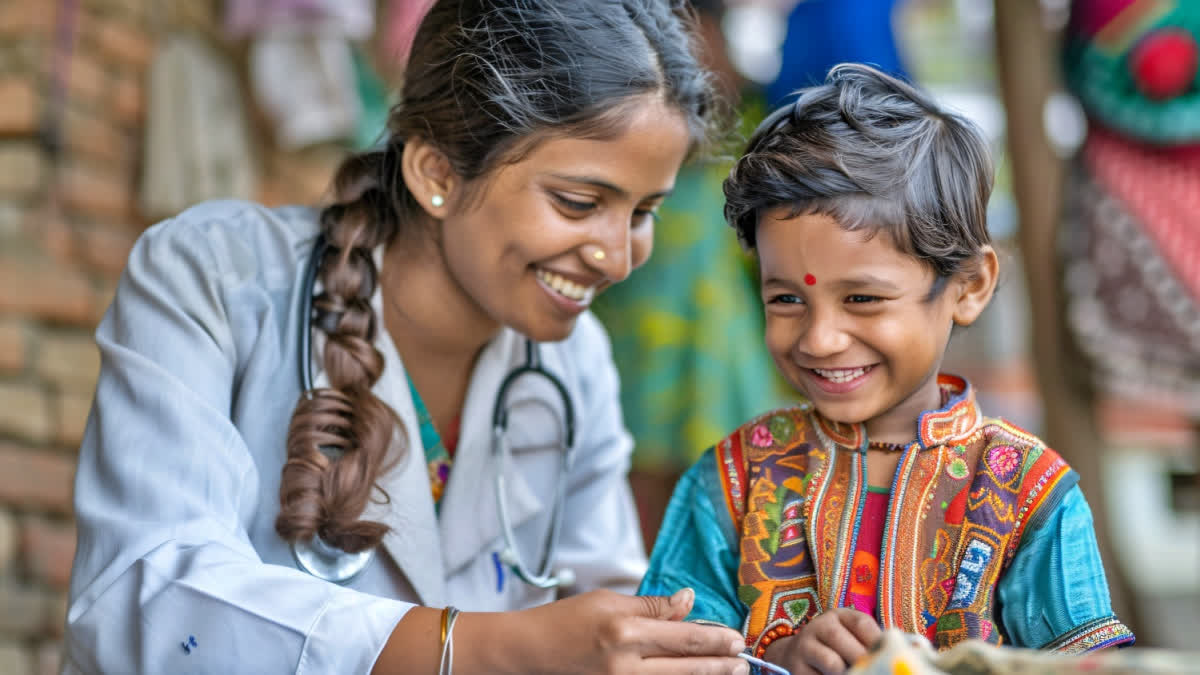Universal Health Coverage (UHC) represents a revolutionary concept: a world where everyone has access to essential healthcare services without financial hardship. December 12 is observed globally as Universal Health Coverage Day, and symbolizes a collective commitment to this vision.
Proclaimed by the United Nations in 2017, the day underscores the urgent need for strong and resilient health systems capable of safeguarding lives while fostering equity and sustainability. For India (a nation with a vast, diverse population and myriad socio-economic complexities) UHC is both a monumental challenge and an unparalleled opportunity.
What Is Universal Health Coverage?
Universal Health Coverage is a philosophy rooted in the principle that health is a fundamental human right. It seeks to ensure that:
- Everyone receives essential health services (preventive, curative, and rehabilitative).
- No one is pushed into poverty because of healthcare costs.
As societies evolve, healthcare becomes not just a personal issue but a collective one. Healthy citizens drive economic productivity, reduce the strain on social systems, and enhance societal well-being. India, as one of the world's largest democracies, has embraced this challenge, crafting ambitious policies like Ayushman Bharat to deliver on the promise of UHC.
The Backbone Of India’s UHC Vision
India’s flagship UHC programme Ayushman Bharat stands on four pillars:
1) Pradhan Mantri Jan Arogya Yojana (PM-JAY):Aims to provide hospitalization coverage of up to ₹5 lakh per family annually for 50 crore vulnerable Indians.
2) Health and Wellness Centres (HWCs):Strengthen primary healthcare services, particularly for maternal, child, and non-communicable diseases.
3) Ayushman Bharat Digital Mission (ABDM):A digital health ecosystem with features like unique health IDs and telemedicine platforms.
4) Pradhan Mantri Ayushman Bharat Health Infrastructure Mission (PM-ABHIM):Focused on enhancing healthcare infrastructure, especially in rural areas.
Kurian acknowledges the program’s potential but notes its financial constraints:
"Despite a solid foundation and a tech backbone prepared over the last decade, we have yet to see focused, additional resources being ploughed into the sector, unlike sanitation, drinking water, and housing,” says Oommen C. Kurian, Senior Fellow and Head of Health Initiative at the Observer Research Foundation.
Mental Health In India’s UHC Agenda
While physical health receives significant attention under UHC, mental health remains a “hidden pandemic.” Says Parveen Shaikh, President of Mpower, “Mental health is an invisible burden that affects millions silently. Despite its rising prevalence, stigma and lack of acceptance remain significant barriers to seeking help.”
She highlights the economic and social cost of ignoring mental health: “Untreated mental health conditions cost the global economy $1 trillion annually in lost productivity. In India, where a large segment of the workforce faces stress, anxiety, and depression, these challenges directly impact the nation’s economic growth.”
Challenges On India’s Path To UHC
India's journey toward UHC is fraught with hurdles that undermine its potential impact. These challenges include:
1. Inadequate Funding
India allocates just 2.1% of its GDP to healthcare (far below the global average). While Ayushman Bharat provides coverage for hospitalizations, it does not fully address the broader needs of preventive care, capacity building, or mental health.
2. Workforce Shortages
